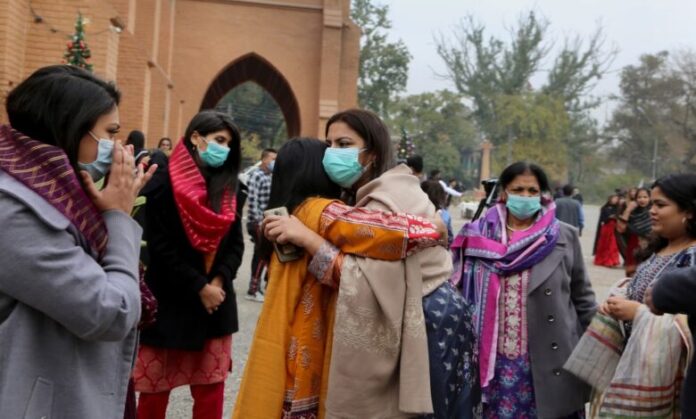
Christmas, the most significant religious festival in Christianity, unfolds on December 25 each year. The festive spirit, however, doesn’t confine itself to a single day; the entire month of December is dedicated to its preparation.
Christians across Khyber Pakhtunkhwa, like the rest of the world, commemorate the birth of Jesus, referred to as the Prince of Peace. Amidst the jubilation, the Christian community in the region cherishes the season but doesn’t forget its departed loved ones.
Sharazar Shahid from Peshawar vividly recalls the tragic incident of September 22, 2013, when worshippers at All Saints Church didn’t return. More than a decade has passed since the tragedy, yet every Christmas serves as a poignant reminder of their absence. While feeling secure in their homes, Sharazar emphasizes that places like the targeted church, mosques, Imambargahs, and funeral gatherings were not safe. Christians, he notes, have contributed their blood to establish peace, a sacrifice eternally remembered.
Also Read: Demystifying Pakistan’s Constitution: Empowering Every Citizen
For Sharazar, the anticipation of Christmas lasts throughout the year. The jingle of bells, the excitement, decorated Christmas trees, and the preparation of sweets and colorful dishes mark the festive season. In Pakistan and particularly in Peshawar, celebrating Christmas faces no restrictions, and over time, Muslims have joined in the festivities.
A Christmas tree outside the historic St. John’s Cathedral Church in Peshawar Sadar serves as a December landmark, indicating the onset of the Christmas month. Peshawaris gather to take pictures and buy decorations, creating a vibrant atmosphere both inside and outside the church.
Maira, a resident of Peshawar, dedicates the entire month of December to Christmas preparations. She highlights that the preparations commence in November, with the purchasing and decorating of Christmas trees. Christmas Eve cake shopping becomes challenging due to the soaring demand. Maira expresses concerns about law and order, emphasizing that educated Christian youth face job limitations to lower positions. She advocates for opportunities in higher positions to uplift the living standards of minorities.
Sharazar Shahid laments that Christian traditions are often disparaged, referring to them as “waste” or “choora” (garbage). He counters this perception, asserting that Christian contributions, particularly in waste management, maintain the cleanliness of the city and the country.
Both Sharazar Shahid and Maira agree on the need for the Christian community’s freedom of movement and improved societal recognition. Although progress has been made, they advocate for continued efforts to bridge religious divides and empower educated youth. Meanwhile, over 100 churches, including 29 in Peshawar, have undergone renovation, with special prayers commencing from December 1 in community centers and churches to mark the Christmas season.







